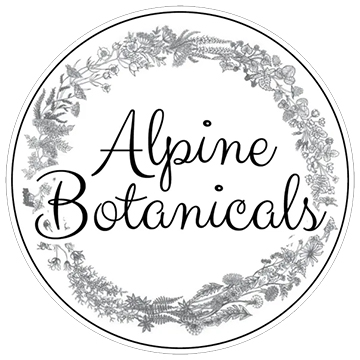 Who would argue that love isn’t good for you? In the glow of love we feel more confident, more important and more alive. Have you noticed that you eat less junk food, sleep better and have more energy when you are preoccupied with love? This is not only true of romantic love – the love we feel for our children, the caring we have for our friends and the attention we give our plants and pets benefit us on many levels. Prevention.com says “it won’t be long before doctors prescribe hot steamy sex, romantic getaways and caring communication in addition to low-cholesterol diets and plenty of rest.”
Who would argue that love isn’t good for you? In the glow of love we feel more confident, more important and more alive. Have you noticed that you eat less junk food, sleep better and have more energy when you are preoccupied with love? This is not only true of romantic love – the love we feel for our children, the caring we have for our friends and the attention we give our plants and pets benefit us on many levels. Prevention.com says “it won’t be long before doctors prescribe hot steamy sex, romantic getaways and caring communication in addition to low-cholesterol diets and plenty of rest.”
So what is going on at the cellular level when love takes over? Scientists have made some compelling discoveries in the twenty-first century on the “biological basis of love”. Magnetic Resonance Imagery (MRI) reveals the two areas of the brain that are most active while we are thinking about someone we love: the “foci of the media insula” (instinct) and the “anterior cingulated cortex” (euphoria). When our brains light up with euphoric instincts, the neurotransmitters dopamine (rewards) and serotonin (happiness) send the “love” signal through our nervous system. The “rewards plus happiness” signal tells the posterior pituitary gland to secrete oxytocin, the “bonding hormone”.
Finally, there is a whole system dedicated to orchestrating all the electrical signals and bio-chemical reactions we experience as love: the limbic system. The limbic system “plays a complex and important role in the expression of instincts, drives and emotions [and] mediates the effects of moods on external behaviors and…bodily functions.” (Anatomy and Pathology, 5th ed.) The limbic system is integrated with the “nucleus accumbens”, the “pleasure center” of the brain. When the brain experiences instinct and euphoria, we utilize more of the chemicals associated with rewards, happiness and bonding, all being regulated by the pleasure center – et voila! We experience the human emotion known as “love”.
What is even more beautiful, is the fact that the limbic system does not work alone – it requires our interaction with someone or something else. According to A General Theory of Love (Thomas Lewis, et al., 2007) when one limbic system meets another limbic system, we have “limbic resonance…a symphony of mutual exchange and internal adaptation whereby two mammals become attuned to each other’s inner states.”
Science has attempted to approximate the bio-chemical reaction that produces the feeling of love by synthesizing dopamine, serotonin and oxytocin (among others). Human love, the most potent self-created and self-regulated drug in the world, has no side effects and many long lasting and far reaching benefits:
- Loving touch: Holding hands, cuddling and hugging are proven to increase levels of oxytocin, which is linked with lower blood pressure. People in close, loving relationships have higher levels of Immunoglobulin A, the main antibody responsible for fighting disease and infection. Positive physical contact, platonic, romantic and otherwise, diffuses the negative impact of stress on our bodies, and helps us to cope better with stressful situations. (Check out The Surprising Health Benefits of Being in Love on vitamedica.com)
- Relationships: A Swedish study found the “give and take” of long-term relationships exercises the brain, keeps the wits sharp and reduces the likelihood of ending up in a nursing home. Similar cognitive benefits can be gained by joining a club, attending community or church related social activities, and doing volunteer work. Married couples have significantly lower risks for diabetes, cancer, Alzheimer’s, and dementia. Due to the increase of dopamine and serotonin when we are in love, it is no wonder that “rates of major depression are nine times higher in unmarried men; divorce or separation more than doubles the risk of suicide in men; married men and women drink less alcohol and use less marijuana and cocaine than the unmarried.” (healthline.com)
- Sharing and caring: You don’t need to rush out and get married to live longer and healthier. Caring for a pet stimulates the same bio-chemical responses related to lower blood pressure, less stress, and lower incidents of cancer, diabetes and cardiovascular disease. A recent study from Cambridge University discovered that people with pets go to the hospital less, exercise more, and are generally happier and healthier.
But did we really need all this scientific proof for something that we’ve known all along? Jack Kornfield, a renowned Buddhist teacher and author, writes about the contagious benefits of love in his book The Wise Heart: “Each time we meet another human being and honor their dignity, we help those around us. Their hearts resonate with ours in exactly the same way the strings of an un-plucked violin vibrate with the sounds of a violin played nearby. Western psychology has documented this of ‘mood contagion’ or limbic resonance.”
Love is contagious, so do your part to spread the love bug this Valentine’s for your health and the health of those you love!













Reblogged this on Casa di Ailin and commented:
Great article!
Pingback: The Rose in the Fire | the holistic homestead